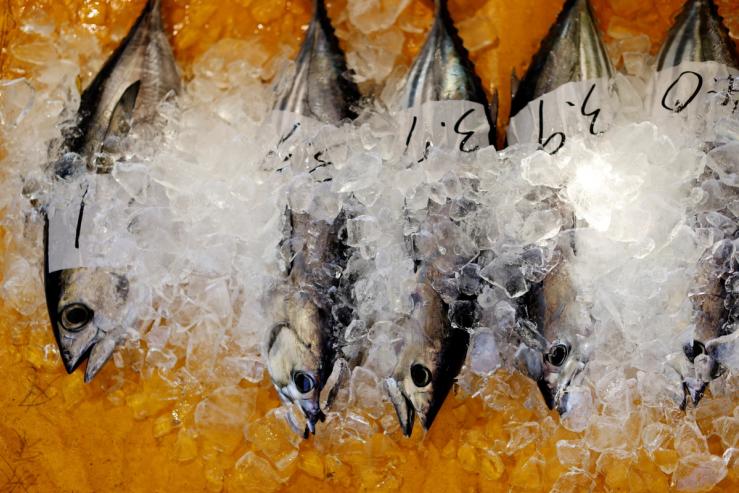The News
Anti-Japan sentiment has spiked in China following the release of treated Fukushima wastewater into the Pacific Ocean. Beijing last week blocked the import of fish from Japan, citing contamination concerns. In response, Japan has hinted it may seek an intervention from the World Trade Organization. Prime Minister Fumio Kishida recorded himself eating fish caught in his country Wednesday in an effort to prove that it was safe to consume.
SIGNALS
Anti-Japanese sentiment in China has jumped following the wastewater release. On social media, Chinese users are sharing lists of Japanese cosmetic companies to avoid, and influencers are saying that they will dodge sponsorship from Japanese firms. The reaction can be chalked up to tensions between the two countries: "This is China’s retaliation. If Japan-China relations were better, it’s unlikely China would have made such a fuss," Ichiro Korogi, an expert on China from the Kanda University of International Studies, told The Wall Street Journal.• 1
The Wall Street Journal, Anti-Japanese Feeling Rises in China After Fukushima Water Discharge
Calling Japan's water "contaminated" is a way for Beijing to further divisions with Tokyo. An import ban implemented on Japanese-caught fish is unlikely to last for long, Shin Kawashima, a professor at the University of Tokyo, told The Japan Times. "It’s more about how China is finding ways to put pressure on the Japanese government," Kawashima said. Meanwhile, the rhetoric from Beijing further pushes public opinion away from Japan.• 2
The Japan Times, Fukushima water release dampens chances of Japan-China detente
The treated water from Fukushima contains Tritium, an isotope of hydrogen which exists naturally. It's impossible to remove from the water because hydrogen is a component of water, so it cannot be filtered out. After the water is diluted, the risk to people and the environment should be "really, really low," Jim Smith, a professor of environmental science at the University of Portsmouth, told NPR. "The doses that people get and the doses that the ecosystem get just won't be significant, in my opinion."• 3



